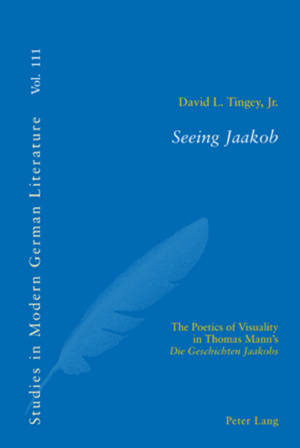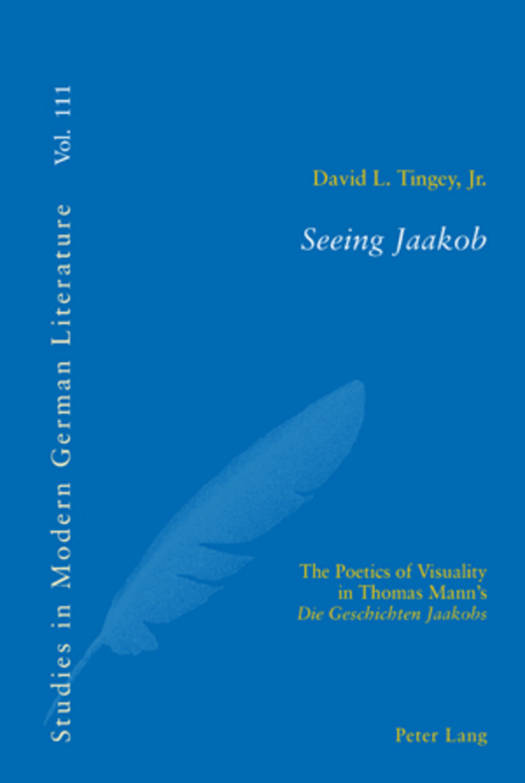
Door een staking bij bpost kan je online bestelling op dit moment iets langer onderweg zijn dan voorzien. Dringend iets nodig? Onze winkels ontvangen jou met open armen!
- Afhalen na 1 uur in een winkel met voorraad
- Gratis thuislevering in België vanaf € 30
- Ruim aanbod met 7 miljoen producten
Door een staking bij bpost kan je online bestelling op dit moment iets langer onderweg zijn dan voorzien. Dringend iets nodig? Onze winkels ontvangen jou met open armen!
- Afhalen na 1 uur in een winkel met voorraad
- Gratis thuislevering in België vanaf € 30
- Ruim aanbod met 7 miljoen producten
Zoeken
Seeing Jaakob; The Poetics of Visuality in Thomas Mann's "Die Geschichten Jaakobs"
David Tingey
€ 85,95
+ 171 punten
Omschrijving
Despite the considerable amount of scholarship on Mann's work, his tetralogy - composed prior to and during his exile from Nazi Germany - has received less attention and has not been examined from the perspective of the relationship of visuality to narrative. In this study of Mann's reworking of the biblical account of Jacob, father of Joseph, the author examines the ways the novel's protagonists frame their environment through knowledge and meaning gained via specific acts of seeing. While considering Mann's oft-stated intent to refunctionalize myth by means of psychology for humane and progressive purposes, the book explores the lavish narrative attention Mann gives to visual detail, visual stimulation, the protagonists' eyes, ways of seeing, and even to staging and performance in anticipation of another's way of seeing. The results reveal that the plot of the first Joseph novel is carried and propelled by a series of visual encounters during which the narrative draws attention to the protagonists' eyes and acts of looking.
Specificaties
Betrokkenen
- Auteur(s):
- Uitgeverij:
Inhoud
- Aantal bladzijden:
- 314
- Taal:
- Engels
- Reeks:
- Reeksnummer:
- nr. 111
Eigenschappen
- Productcode (EAN):
- 9783039119066
- Verschijningsdatum:
- 29/06/2010
- Uitvoering:
- Paperback
- Formaat:
- Trade paperback (VS)
- Afmetingen:
- 152 mm x 229 mm
- Gewicht:
- 430 g

Alleen bij Standaard Boekhandel
+ 171 punten op je klantenkaart van Standaard Boekhandel
Beoordelingen
We publiceren alleen reviews die voldoen aan de voorwaarden voor reviews. Bekijk onze voorwaarden voor reviews.











